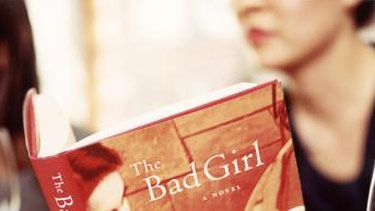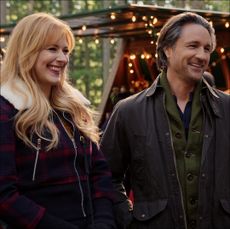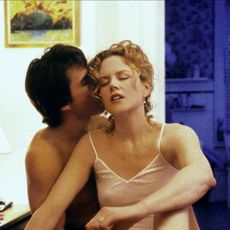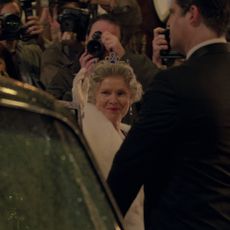
This month, the book club debates obsessive love and its consequences in Mario Vargas Llosa's The Bad Girl, now out in paperback. Worth the $14? Read on . . .
THE PLOT: Ricardo Somocurcio just can't get over the bad girl. He first fell for her in 1950, when he was a teenager in Peru, and she was pretending to be from a well-to-do family. A decade later, he fell for her again when she was masquerading as a Communist cadet in Paris. Peruvian author Mario Vargas Llosa's sexed up story--an homage to Flaubert and, arguably, Gabriel García Márquez - follows the long, torturous, on-again/off-again affair through 40 years of social unrest in the world's most fashionable cities.
NING (SENIOR BEAUTY EDITOR): I hated this book. It made me lose faith in men. Ricardo reminded me of all the nice guys who fall for the girl who's totally crazy. Why do they do that?
JULIA (COPY CHIEF): I didn't like the first hundred pages - all those Latin American coups came out of nowhere, read like newspaper clippings, and seemed to have no impact on the story. But later, I enjoyed Ricardo's whirlwind world tour. And I'm a sucker for a hopeless love story.
YAEL (ASSOCIATE EDITOR): But was it really a love story? It's pretty twisted. Did he love her, or was he just infatuated? I don't think he knew her well enough to really be in love. Or maybe he just wasn't that deep.
LAUREN (ARTICLES EDITOR): See, I liked the first hundred pages - the vivid descriptions of his neighborhood in Peru took you right there - but I hated the rest. And I definitely didn't buy that he was in love with her. We have no basis for understanding why he would behave so obsessively, or where he was coming from. The bad girl treated him like absolute shit, and he kept taking it. Why?
YAEL: It was interesting that the sex scenes always went back to him going down on her. She'd cover her eyes and drift off as if he weren't even in the room, then didn't reciprocate. In terms of being a woman of that time, it's great that she asked for what she wanted. But in terms of a relationship, she was just selfish.
Stay In The Know
Marie Claire email subscribers get intel on fashion and beauty trends, hot-off-the-press celebrity news, and more. Sign up here.
JULIA: The one time they do have reciprocal sex it's because she's humiliated him enough that he slaps her around. That turns her on.
NING: It was really an S&M relationship. Emotional S&M.
LAUREN: But there was nothing erotic about the sex scenes. I mean, the language! I'm going to blame the translator, because I can't imagine a writer like Vargas Llosa would call his penis "my sex."
JULIA: And how about the word pubis? But maybe the point of the book is that the relationship is never going to sort itself out. She's going to be wrong for him, he's going to keep going back to her, and in the meantime, he has this amazing life where he's traveling from intellectual Paris to swinging '60s London to disco Japan. He's seen history unfold in spite of himself.
LAUREN: But he never really engaged in any of it. And there was no knowingness in the way Vargas Llosa painted the cities or the scenes. You knew these cultural groundswells were happening, and you were told Ricardo was participating, but you didn't actually see him doing anything.
NING: I just thought the book was repetitive - from country to country, he never changed. I can't imagine living your life and not evolving. Isn't the whole point that you make mistakes and then learn from them? You don't just keep doing them until you die, right?

SHOULD YOU READ IT?
JULIA: yes
YAEL: yes
NING: no
LAUREN: no
"Maybe the point of the book is that the relationship is never going to sort itself out . . . and in the meantime, he has this amazing life." -JULIA
NEXT MONTH: The Monsters of Templeton by Lauren Groff (Voice).
-
 Bitten Lips Took Center Stage at Dior Fall 2024 Show
Bitten Lips Took Center Stage at Dior Fall 2024 ShowModels at the Dior Fall 2024 show paired bitten lips with bare skin, a beauty trend that will take precedence this season.
By Deena Campbell Published
-
 30 Spring Items That Solve My Expensive-Taste-on-a-Humble-Budget Dilemma
30 Spring Items That Solve My Expensive-Taste-on-a-Humble-Budget DilemmaSee every under-$300 spring item on my wish list.
By Natalie Gray Herder Published
-
 Your Makeup Won't Budge With These Setting Sprays
Your Makeup Won't Budge With These Setting SpraysPrepare for 12-hour wear.
By Sophia Vilensky Published
-
 The Best Bollywood Movies of 2023 (So Far)
The Best Bollywood Movies of 2023 (So Far)Including one that just might fill the Riverdale-shaped hole in your heart.
By Andrea Park Published
-
 ‘Bachelor in Paradise’ 2023: Everything We Know
‘Bachelor in Paradise’ 2023: Everything We KnowCue up Mike Reno and Ann Wilson’s “Almost Paradise."
By Andrea Park Last updated
-
 Who Is Gerry Turner, the ‘Golden Bachelor’?
Who Is Gerry Turner, the ‘Golden Bachelor’?The Indiana native is the first senior citizen to join Bachelor Nation.
By Andrea Park Last updated
-
 ‘Virgin River’ Season 6: Everything We Know
‘Virgin River’ Season 6: Everything We KnowHere's everything we know on the upcoming episodes.
By Andrea Park Last updated
-
 The 60 Best Musical Movies of All Time
The 60 Best Musical Movies of All TimeAll the dance numbers! All the show tunes!
By Amanda Mitchell Last updated
-
 'Ginny & Georgia' Season 2: Everything We Know
'Ginny & Georgia' Season 2: Everything We KnowNetflix owes us answers after that ending.
By Zoe Guy Last updated
-
 35 Nude Movies With Porn-Level Nudity
35 Nude Movies With Porn-Level NudityLots of steamy nudity ahead.
By Kayleigh Roberts Last updated
-
 The Cast of 'The Crown' Season 5: Your Guide
The Cast of 'The Crown' Season 5: Your GuideThe Mountbatten-Windsors have been recast—again.
By Andrea Park Published